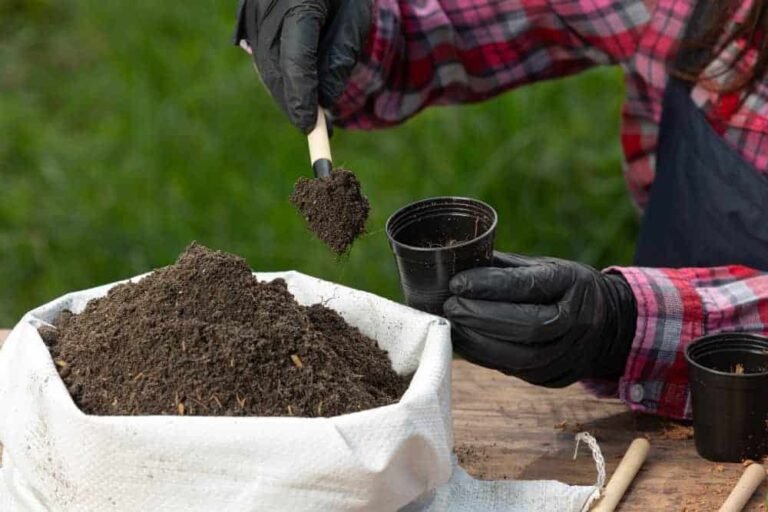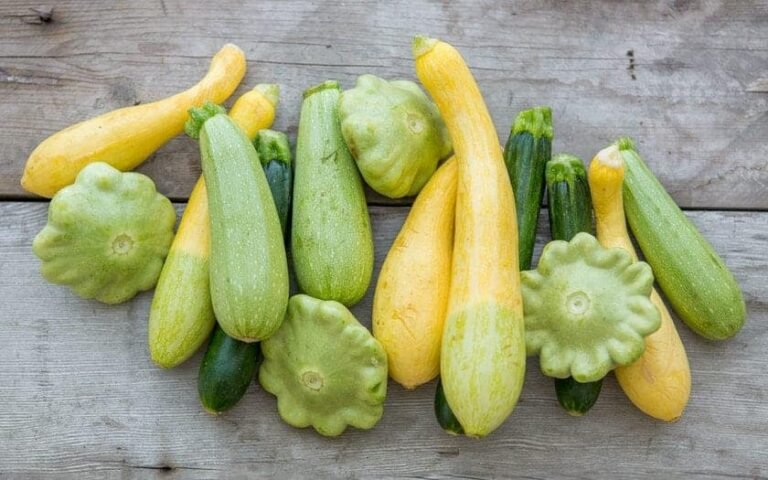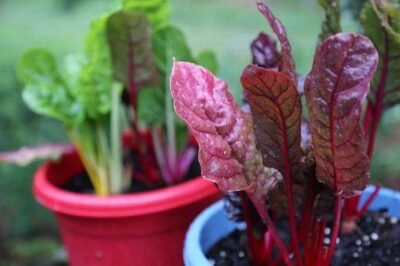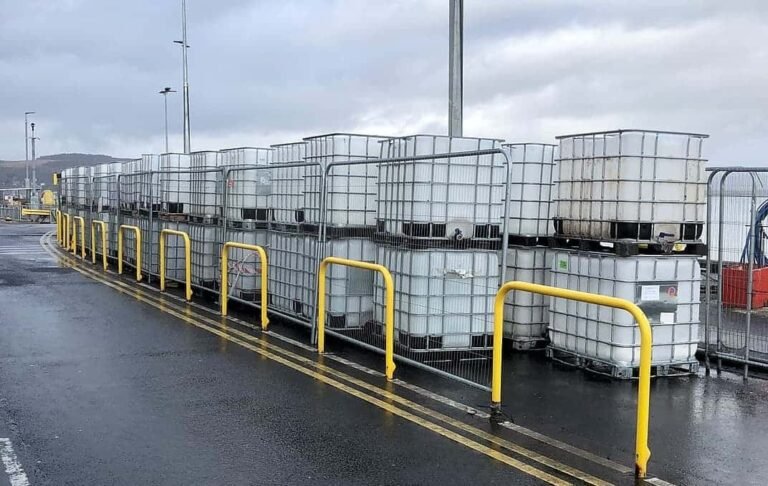4 Easy Methods of Composting For Beginners (With Materials Needed)
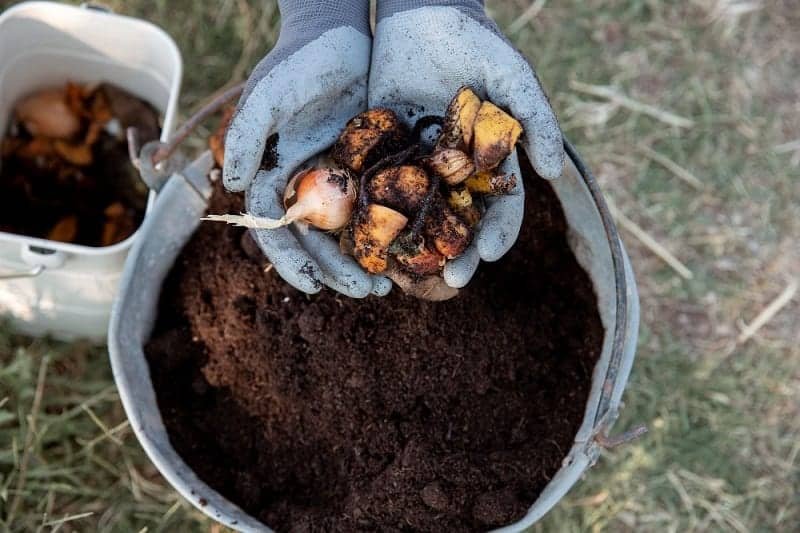
Composting for beginners can be a herculean task especially if you do not know how to go about it. Here’s a step-by-step guide on how to get this black gold.
However, because composting is essential to supplement your soil with rich Nutrients to Grow Onion or any other plants, it’s ideal you learn how to make compost.
In this article, we have put together the necessary information you need to make compost from scratch to finish.
Also, we have included the kinds of materials that are ideal for composting and the ones you should avoid.
In addition, you will find the easiest way to make compost even if you do not know How To Start A Garden From Scratch.
This Gardening Tip, For Beginners, will help you achieve a beautiful garden by preparing your soil with rich compost.
Is that what you intend to find?
Let me walk you through it in a few minutes!!!
But first! What is Compost?

What is Compost?
Compost is a mixture that consists largely of decayed organic matter used for fertilizing and conditioning the soil for planting.
Composting supplements your garden with nutrient-rich humus that fuels plant growth and restores vitality to depleted soil.
What are the Benefits of Adding Compost to The Soil?
Over the years, composting has been the remedy for restoring soil nutrients.
Many gardeners and farmers adopt this Gardening Tip because it’s not just free and easy to make, it has a lot of benefits attached to it.
The benefit to the crop as well as benefits to you as a farmer. Here are some of them;
#1. Compost is a Soil Conditioner.
Compost is not called “black gold” for nothing.
Want to know why?
Compost adds rich humus to your lawn and garden which adds nutrients to your plants and helps retain soil moisture.
#2. Making Compost is a Way To Recycle Kitchen and Yard Waste.
Most of the materials used to make compost come from 30% of household waste and garbage can waste exclusively. You can also compost those perishable foods that waste after harvest.
This is greatly advantageous because organic matter lacks the air it needs to decompose quickly once it gets to land.
So rather than land pollution, compost helps to recycle this waste into something meaningful.
#3. Composting Introduces Beneficial Organisms to the Soil.
When compost is added to the soil, it introduces organisms that help to aerate the soil, break down organic materials for plant use, and ward off plant disease.
#4. Compost is Good for the Environment.
Because chemicals can be harmful to the environment, compost is an alternative way to fertilize lawns and garden beds.
#5. Composting Reduces Landfill Waste.
Just like compost helps to convert your kitchen waste to something more useful, it also helps reduce landfill waste.
One-third of landfill waste is compostable materials.
Composting helps to divert this waste from landfills to a more useful product for plants.
What Materials Can I Compost?
Beginners who want to start the composting journey often are confused as to what materials they can compost.
Although the kind of composter you have will determine the kind of compost you keep, there is a rule that stands true at all times during composting.
All materials to compost must be carbon or nitrogen-based to varying degrees.
One of the major compost tips or secrets is to find a balance in the carbon/nitrogen ratio of these two elements used in composting.

Carbon Materials Used in Compost
Carbon elements give the compost its light, fluffy body.
A healthy compost pile should have more carbon elements than nitrogen.
Some of the carbon-rich elements beginners can use in composting include;
- Branches
- Stems
- Dried leaves
- Peels
- Eggshells.
- Straw
- Peat moss
- Wood ash
- Bits of wood
- Bark dust
- Sawdust pellets
- Shredded brown paper bags
- Corn stalks
- Coffee filters and grounds
- Conifer needles
Nitrogen Materials Used in Compost
Nitrogen or protein-rich matter provides raw materials for making enzymes.
Too much nitrogen makes for a dense, smelly, slowly decomposing anaerobic mass.
- Manures
- Green leaves
- Food scraps
- Kitchen waste
- Green lawn clippings
What Materials Are Not Ideal To Add To A Composting Pile?
Beginners who are new to the composting journey often make the mistake of adding anything within their reach to the composting pile.
But that’s a red flag in making compost.
Some of the materials you should not add to your compost file include;
- Butter
- Grease
- Meat
- Bones
- Pet Food
- Cooking oil
- Animal fat
- Fish scraps
- Banana peels
- Peach peels
- Orange rinds
- Black Walnut
- Perennial weeds
- Diseased plants
Some of the above-listed materials attract pests, spread weed seeds or diseases, and may contain pesticide residues.
How To Make Compost.
Now you know what to compost and what not to compost, how do you go about making your own compost?
Before we talk about composting, it’s ideal that you know that different composting materials will decompose at different rates, but in the long run, they will all break down.
But to speed up the composting process, here’s what to do;
- Chop the large compost materials into smaller pieces.
- The leaves and grass clippings should be sprinkled into the bin or dug into the center of the pile and mixed with other materials.
- Avoid putting the leaves in thick layers. Doing this will make them mat together and reduce aeration. This slows the composting process.
- Also, you can add garden soil to your compost. This will not just speed up the process, but it will also help to mask any odors and help microorganisms in the soil to accelerate the composting process.
So how can I compost?
- Start your compost pile on bare earth. By doing this, it allows beneficial organisms such as worms to aerate the compost and be eventually transported to your garden beds.
- Then lay twigs or straw a few inches deep to aid drainage and help aerate the pile.
- Gather all the materials you want to compost.
- Add compost materials in layers of moist (food scraps, tea bags, seaweed, etc.) and dry ones (straw, leaves, sawdust pellets, and wood ashes.)
- Proceed to add a nitrogen source to the compost. This can be manure, clover, buckwheat, wheatgrass, or grass clippings. The nitrogen source activates the compost pile and speeds up the process.
- Water the compost occasionally. It helps to keep the compost moist. What this means is you have to site the composting pile where rain can do the job in case it rains. However, keep in mind that the compost should be moist, but not soaked and sodden.
- Ensure you cover the pile with anything you have for instance wood, plastic sheeting, or carpet scraps. By covering it, you help the compost pile retain moisture and heat which are essential for composting. Covering also prevents the compost from being overwatered by rain.
- Turn the pile as regularly as possible at least once every few weeks using a pitchfork or shovel. Turning the composting pile helps to aerate the pile. Plenty of oxygen is required if this process is to work and turning “adds” oxygen. However, do not turn if you have a ready supply of coarse material like straw. You can use a rotating compost tumbler because it makes it easy to mix the compost regularly.
Wait for the pile to decompose more and your compost is ready to add richness to your garden soil.
However, you can achieve this using any of the composting methods that suit you.
Find out more below.

List of Some Simplest Composting Methods For Beginners.
You can compost using any of the composting techniques.
Below is a list of the easy-to-use procedures that even a novice can use.
#1. “No-Turn” Composting:
If you do not have the strength to turn this huge pile of dirt, the No-Turn composting technique is ideal for you.
Using this technique, you can aerate your compost without turning it.
All you have to do is to mix in enough coarse material, like straw when building the pile.
This is fast but it has more nitrogen levels.
#2. Enclosed are Compost Bins:
Enclosed bins are used for small-scale composting. It could be;
- DIY Compost Bin: This is not expensive. All you have to do is to drill 1.5 cm aeration holes in rows at roughly 15 cm intervals around the can. Fill the can of the compost materials and stir. If the lid is tight enough, you can lay it to the side and roll it.
- Standard Compost Bins/Digesters: Here, the compost bin is enclosed on the sides and top, and open on the bottom. Because it is more difficult to turn the compost in using this technique, it can take several months to produce compost.
#3. Food Waste Digester:
This is another composting technique beginners can adopt.
This technique grinds and dehydrates food waste rather than decomposing it.
It’s simple and takes about three hours to complete leaving you with an odor-free material suitable for your garden.
#4. Tumblers:
Some tumbler designs provide interior “paddle” or “aeration spikes” which help bring air into the compost and prevent clumping of the composting materials.
On the other hand, some have holes on the ends for aeration.
How Long Does it Take For A Compost To Be Set?
Compost can be set in as little as 6 to 8 weeks or more.
A leaf compost pile on the other hand takes about 4 – 6 months to be set for use.
In general, the more effort you put in, the quicker you will get compost.
When the ingredients you have put in your container have turned into a dark brown, earthy-smelling material, the composting process is complete.
At this time, the material will be dark and crumbly fit to be used as an organic soil amendment and conditioner, and fertilizer.
How Do I Store My Compost in the Kitchen?
To store compost, just keep it closed until you want to use it preferably in a stainless steel compost pail with a carbon filter or a ceramic model.
Frequently Asked Questions About Composting For Beginners
What are the Tips for Successful Composting?
- Activate your compost
- Discourage flying insects from coming around the compost pile.
- Prevent the compost from having an unpleasant smell by not adding bones or meat scraps.
What is the Easiest Way To Compost?
The easiest way to compost is to lay the compost materials alternatively against each other.
Whatever you have, lay it green and brown next to one another and it will eventually decompose.
Can You Put Bread In Compost?
Yes, mouldy and stale bread is a good addition to compost the pile.
The mould bread contributes further to decomposition, making it a great idea to compost mouldy bread.
What Are The Signs That My Compost Is Ready?
Compost is ready or finished when it looks, feels, and smells like rich, dark earth rather than rotting vegetables.
It should be dark brown, crumbly, and smell like earth.
Should I Pee In My Compost?
Gross!!! Right?
As much as this is gross because you don’t drink your own pee, pee is good for compost.
Urine is very rich in nitrogen, so it counts as a “green” in the compost.
However, it shouldn’t be added to a compost bin that is already high in nitrogen-rich materials like food scraps.
To add pee to the compost, be sure the pike already has plenty of carbon-rich materials, like dry leaves, sawdust, straw, and cardboard.
How Often Should You Water A Compost Pile?
As a rule of thumb, the compost should be watered every 3-7 days.
The quantity of water will depend on the amount of compost and its location.
Summary
Composting can be a little tricky for beginners, especially those who are new to farming.
However, following all we have stated above, you will have your own compost ready in a few weeks and enrich your soil with great nutrients.
You may want to look up How To Prepare The Soil for Planting.
Have you ever added compost to the soil? What was it like?
Share your thoughts in the comment section!
